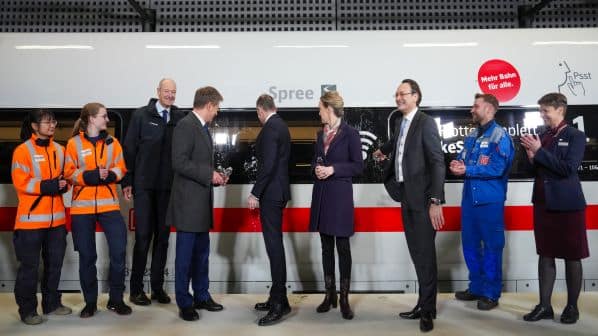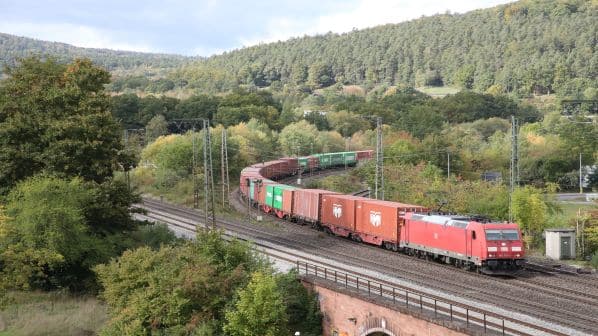GERMAN Rail (DB) recorded a negative adjusted Ebit of €964m for the 2023 financial year compared with an Ebit of €1.2bn the previous year. However, DB says it expects revenue to grow to €47bn in 2024 to help achieve a positive adjusted Ebit of more than €1bn.
“As expected, additional expenses for infrastructure and substantial advance payments for the federal government amounting to more than €1bn had a negative impact on DB's operating result (Ebit),” DB says.
DB’s overall revenue fell by 13% in 2023 to €45.2bn due to what DB describes as a normalisation of freight rates in international logistics. Nevertheless, DB Schenker’s operating profit of €1.1bn was still more than twice pre-Covid levels.
Rail revenue grew by 6.2% to €26.2bn, with long-distance passenger income up by 18.4% at €5.9bn. DB Regio achieved sales of €5.9bn, around 7.4% more than in 2022.
DB Regio recorded a 9% increase in passenger-km to 43.5 million, partly thanks to the introduction of the Deutschlandticket in May 2023 which offers unlimited use of all regional and local transport in Germany for a flat fee of €49 per month.
Long-distance passenger traffic at DB exceeded the pre-Covid level for the first time in 2023 with a 9% increase to 45.5 million passenger-km.
DB Cargo sales rose by 6.4% to €5.6bn in 2023, despite an 11.9% drop in tonne-km from 84.5 billion in 2022 to 74.5 billion in 2023.
The high utilisation of the rail network combined with a major track maintenance and renewals programme resulted in a decline in punctuality. Long-distance passenger services suffered the worst with only 64% of trains arriving on time in 2023 compared with 65.2% in 2022. DB Regio punctuality dropped from 91.8% to 91% over the same period.
“We made advance payments in 2023 and built more than ever before, because the renovation and modernisation of the infrastructure cannot be delayed,” says DB’s CEO, Dr Richard Lutz.
“At the same time, 2023 marks a turning point: together with the federal government, we have decided on the largest and most comprehensive investment programme since the railway reform in 1994. We are no longer driving the rail network to wear and tear but are renovating and modernising the infrastructure from the ground up.
“Thanks to the federal government's significant increase in budget resources, we can invest around €30bn additionally. In this way, we are driving forward the implementation of our Strong Rail strategy. Only with an efficient network can we achieve the federal government’s climate and transport policy goals and more traffic on environmentally friendly rail.”
DB plans to completely renovate 40 key corridors on the rail network to achieve a 9000km high-performance network by 2030. This year DB will start work on renovating the 79km Frankfurt - Mannheim main line. “During a test phase in January, it was possible to use five times as much building material as conventional construction sites,” Lutz says.
In 2023, DB and the federal government increased gross investment by 12% compared with 2022 to €16.9bn, of which more than 94% was directed at rail. The net investment from DB’s own funds increased by over 16% to €7.6bn, which DB describes as a new record. However, net debt increased by 17.8% from €28.8bn in 2022 to almost €34bn last year, resulting in a significant increase in interest payments.
“Our railway companies will have to earn money again in the future and pay for their investments from current income,” says DB’s CFO, Dr Levin Holle. “To achieve this, we have to become significantly more efficient.”
This year gross investment with the federal government is expected to increase to around €21bn. DB also wants to significantly increase net investment from its own funds again in 2024. In long-distance passenger, DB forecasts a recovery in punctuality to around 70% this year, while DB Regio predicts punctuality of around 93%.




